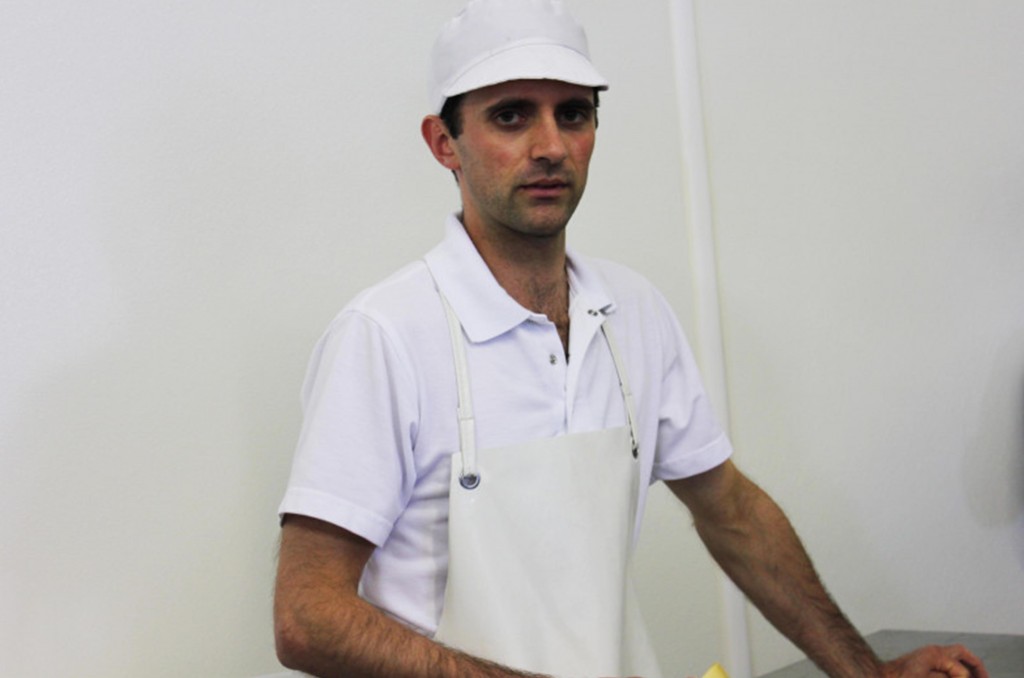Production of Rush Creek Reserve Canceled Due to Regulatory Uncertainty
While some holiday food traditions like fondue or raclette develop around the presence of loved ones, conversations and the memories they create, others coalesce around the food itself. Must-trys become must-haves, year in and year out.
Rush Creek Reserve, a highly coveted cheese produced by Uplands Cheese in Dodgeville, creates this type of excitement and loyalty, especially around the holidays, when a limited supply of the creamy, earthy stuff has been made available each of the past four years.
Made with raw autumn milk from cows in a closed, cross bred, rotationally-grazed herd, Rush Creek Reserve is the sum of its most important parts: high-quality milk and careful aging. The cheese is wrapped in spruce bark and aged on wooden boards in the traditional fashion. While this process has resulted in fervent admiration, it has also led to controversy.
Because of the Food and Drug Administration’s recent equivocation on the safety of both raw milk and the aging of cheese on wooden boards, Uplands owner and cheesemaker Andy Hatch informed distributors in August that Uplands wouldn’t be producing Rush Creek Reserve in 2014. He stressed the decision wasn’t a result of negative interactions with FDA or state inspectors, but rather a business decision made in light of significant uncertainty.
“Along with other members of the American Cheese Society, I have been in dialogue with FDA officials about the consequences their policies are creating,” he said. “I have to say that they’ve recently been responsive to our concerns, although they don’t show any signs of changing their approach.”
Time will tell whether the FDA can hammer out more clearly defined policies and regulations that take into consideration years worth of safe cheese production, as well as the wealth of experience of Wisconsin artisans like Hatch. What’s clear is that Wisconsin isn’t alone.
“I recently spent a week in Australia, visiting people in their cheese industry, and the island mentality there, which has tried to prevent the production or entry of any raw milk cheese, has left them isolated from a world of flavor,” Hatch said. “I worry that we’re trending in that direction, and that my children will live in a world of two-dimensional cheese.”
Photos courtesy of Farm to Table Wisconsin and Uplands Cheese







